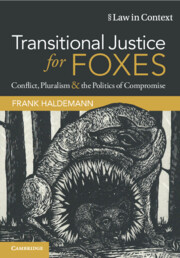‘Value pluralism’ is a strand of analytical philosophy that posits the plurality of morally significant values. By enabling systematic mapping of the diversity of moral registers within which social policy concerns might legitimately be considered, we contend that value pluralist-inspired analysis can aid constructive policy dialogue. Our argument is founded on four claims: first, as a matter of normative principle, value pluralism represents a defensible ethical standpoint; second, as a matter of fact, people are attracted to a plurality of moral values; third, as a matter of democratic legitimacy, pluralism offers a means of (partially) reconciling rival moral claims; fourth, as a matter of political strategy, pluralism offers a pragmatic approach that can engage protagonists on their own terms. To demonstrate its efficacy, we apply this pluralist approach to the vexed question of welfare conditionality, which we interrogate via six normative perspectives (rights, utilitarianism, contractualism, communitarianism, paternalism and social justice).
